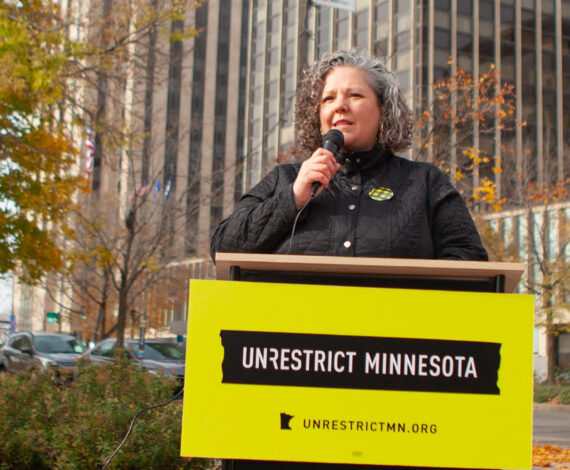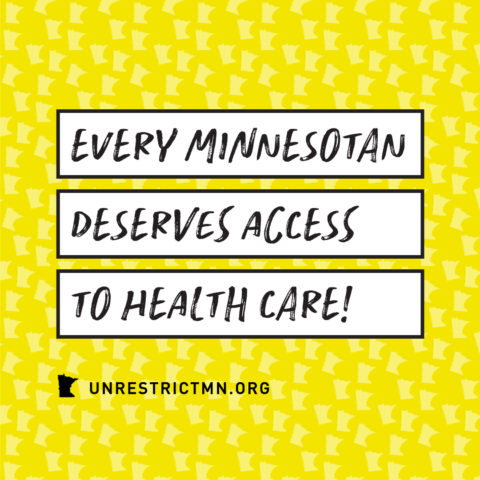
Doe v. Minnesota:
Today, in a victory for abortion-rights advocates in Minnesota, a state district court judge refused to halt the ongoing legal challenge to laws restricting abortion access in Minnesota, allowing the case to proceed.
FOR IMMEDIATE RELEASE
April 4, 2022
CONTACT
Noah Parrish, Communications Director
[email protected]
651.432.0171
Earlier today, in a victory for abortion-rights advocates in Minnesota, a state district court judge refused to halt the ongoing legal challenge to laws restricting abortion access in Minnesota, allowing the case to proceed.
Today’s order comes after the Minnesota Attorney General asked the court to stay – or pause – the case pending appeal at the Minnesota Court of Appeals. The Attorney General has also asked the same court to scale back the protection that the Minnesota Constitution has historically afforded abortion rights; a ruling on that request is pending.
These actions come at a time when Texas’ unconstitutional abortion ban, known as SB 8, is disrupting abortion access throughout the country, as Texas patients are scrambling to obtain care in other states, causing abortion patients in those states to experience long waits or seek care elsewhere. The evidence in this case shows that because access remains restricted in Minnesota, Minnesota residents are traveling as far as Seattle, Washington, to obtain abortion care. At the same time, numerous conservative states have joined Mississippi in asking the U.S. Supreme Court to overturn Roe v. Wade, in a decision expected in June. The precarious status of federal abortion rights makes the Minnesota Attorney General’s efforts to delay adjudication of this case—and ultimately dismantle State constitutional protection for abortion rights—all the more dangerous.
“Every day that Minnesota’s abortion restrictions remain on the books, they limit the dignity and bodily autonomy of people seeking abortion care during a time when the demand for abortion care in Minnesota is skyrocketing,” said Shayla Walker, Executive Director of Our Justice. “We hope that this decision means our case can continue with the urgency required to honor everyone’s right to access safe, legal abortion care.”
“At First Unitarian Society of Minneapolis, we are glad and grateful for this decision,” said Rev. Kelli Clement, Assistant Minister for Social Justice. “We remain committed to people making their own health care decisions, including abortion care, and we support their right under Minnesota law to access that care without delay.”
“These laws are harmful, unconstitutional, and insulting to pregnant people in Minnesota,” said Jess Braverman, Legal Director of Gender Justice. “We are glad to be one step closer to resolving this case.”
“Minnesota continues to pull out all the stops when it comes to defending these unconstitutional abortion restrictions, restrictions that are harming the sexual and reproductive health of Minnesotans on a daily basis,” said Tanya Pellegrini, Senior Counsel at the Lawyering Project. “We are pleased our clients will not have to endure further delays as they fight for Minnesotans’ reproductive rights, health, and justice.”
Doe v. Minnesota was filed in May 2019 in the Second Judicial District. Plaintiffs Our Justice, the First Unitarian Society of Minneapolis, and two health care providers argue Minnesota abortion restrictions—including a ban on qualified advanced-practice clinicians providing abortion care, a 24-hour mandatory delay and a requirement that young people notify both parents before they can receieve abortion care, even if they are estranged— harm their patients, clients, and congregants. They are represented by the Lawyering Project and Gender Justice. A few months after the suit was filed, Minnesota asked a state district court to dismiss the suit, a request which was denied in June 2020 after oral argument in October 2019.
Doe v. Minnesota:
